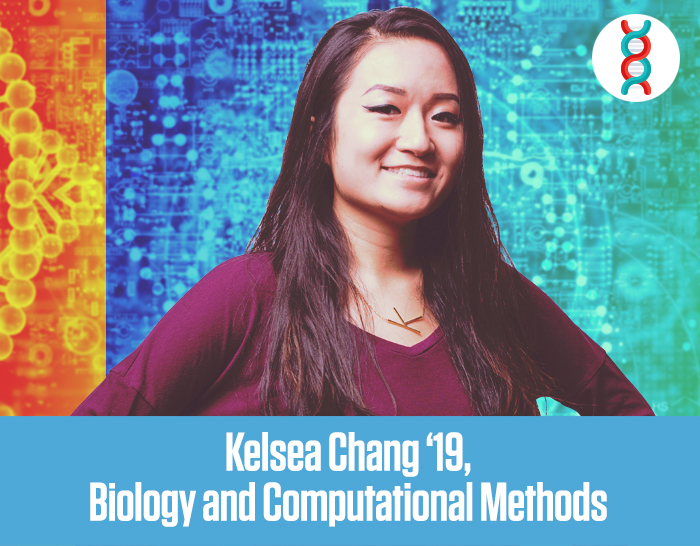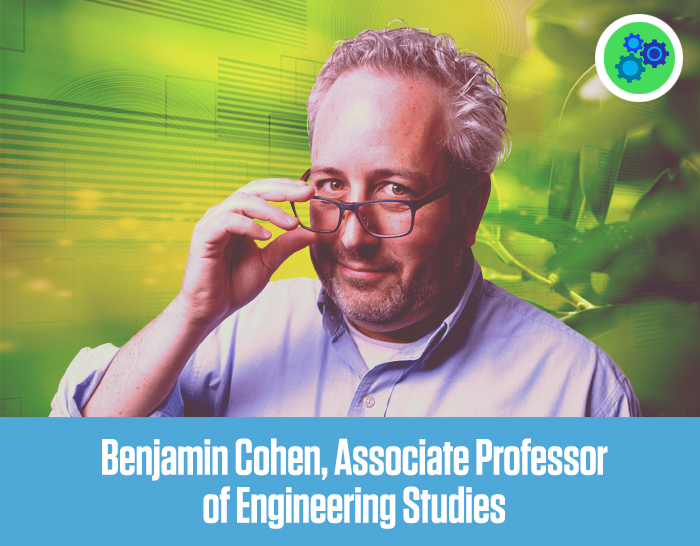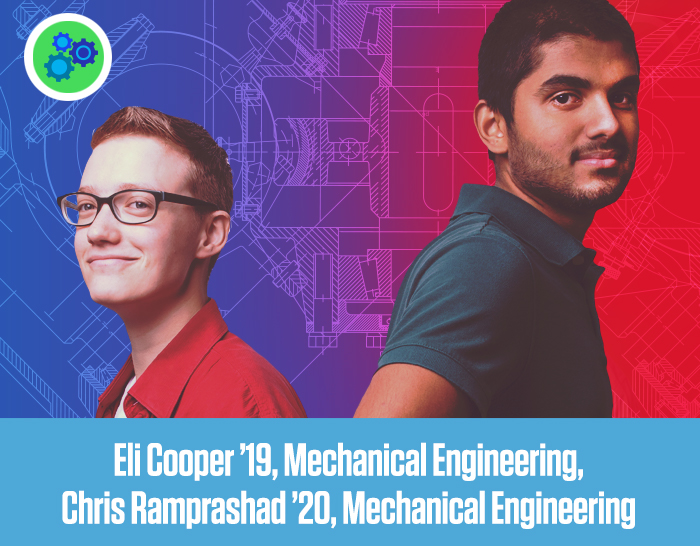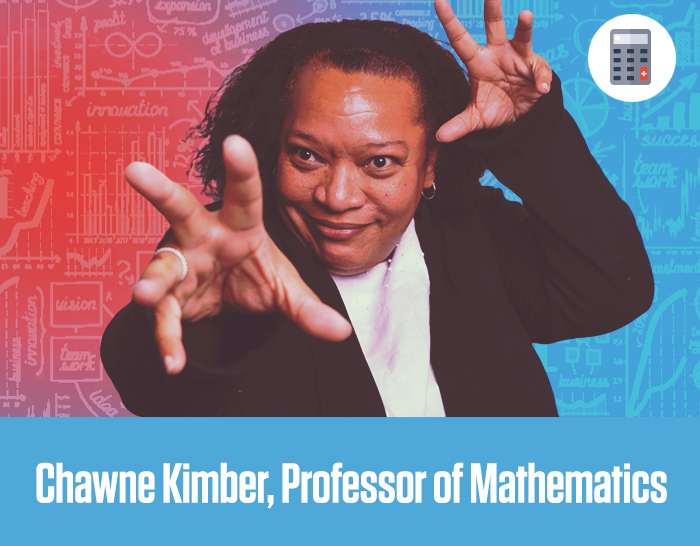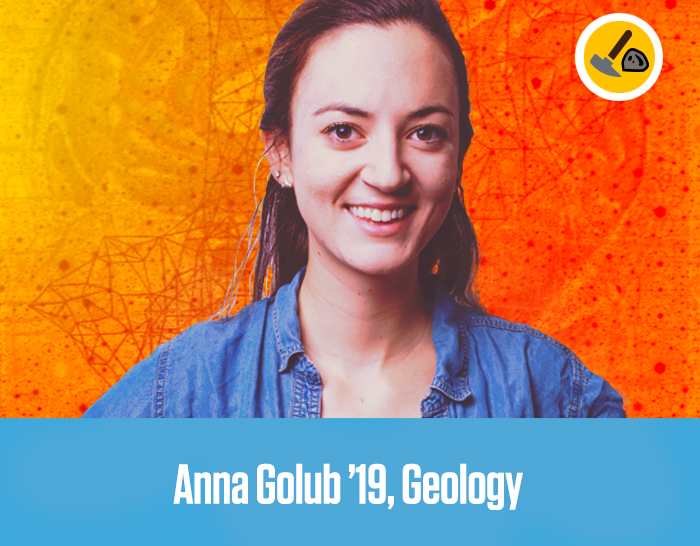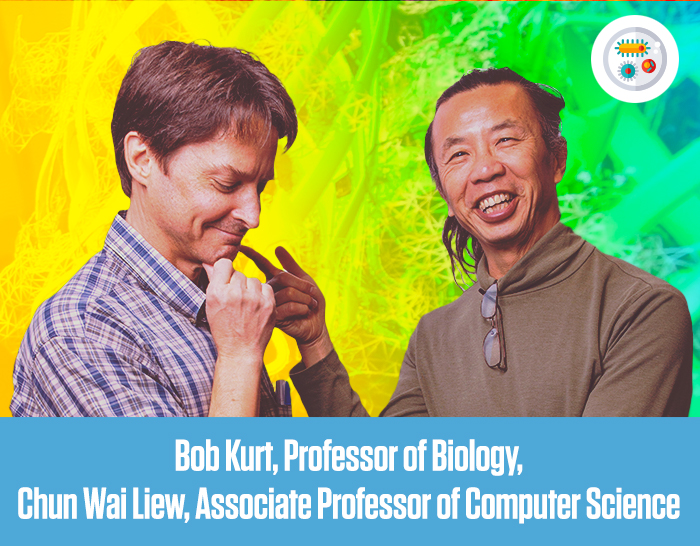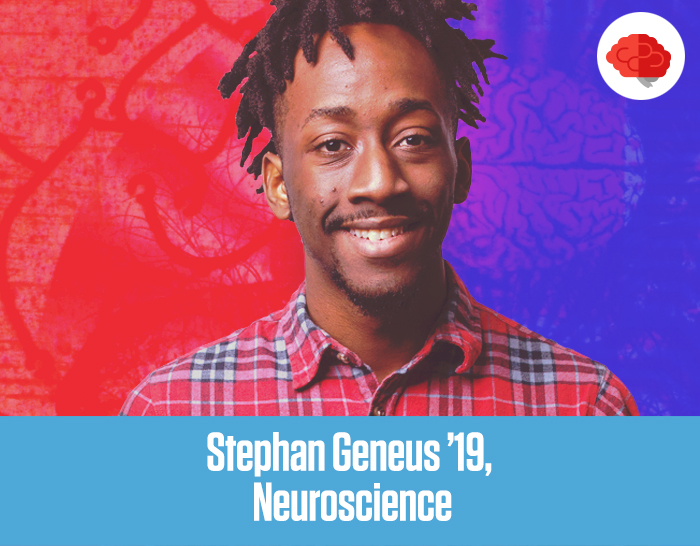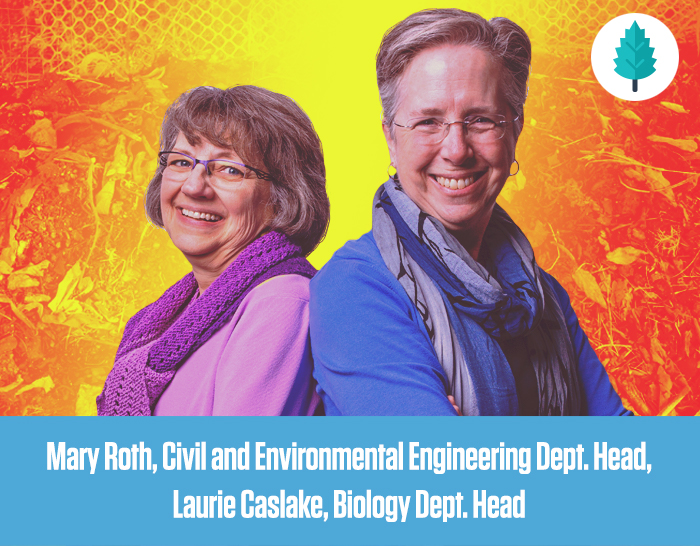The immune system has a complicated relationship with cancer. Sometimes, it fights it. Sometimes, it misses it completely. Other times, it can contribute to the cancer metastasizing and spreading. To better understand the immune system’s response to cancer, Bob Kurt, professor of biology, studies cell signaling, the process in which cells respond to their environment and make a decision to proliferate or die. Working alone, Kurt could uncover the signaling process that occurs in one protein of a cell at a time. But that would only reveal a small piece of the big puzzle, and it would take several years. Thanks to a collaboration with Chun Wai Liew, associate professor of computer science, Kurt has been able to fast-track his research.
Liew created a program that runs virtual experiments to make predictions and give Kurt feedback so he can tweak his lab experiments in an informed and expedited way. “If there are 20 proteins in a cell talking to each other and involved in communication, and each one works differently, it is a very slow process to understand each one,” Kurt says. “If you have a good model that tells you what experiments you should be doing in the lab, it could save you 10 years.”
While Kurt is focused on cancer cells (breast-cancer cells, in particular), their collaborative efforts can have implications behind health sciences and biology. Liew, for instance, studies artificial intelligence and investigates how machines and humans can work together to communicate better. His work with Kurt informs that research. “The computer is an expert in modeling, and Bob is an expert in biology, and so you could say he’s my guinea pig,” says Liew, who in 2017 received a three-year grant from the Air Force Office of Scientific Research. “Studying the collaboration between man and machine can be difficult and complex, but I like challenging problems. I like learning about new things and enjoy having collaborations. It makes it much bigger than computer science, and that’s part of the fun.”
